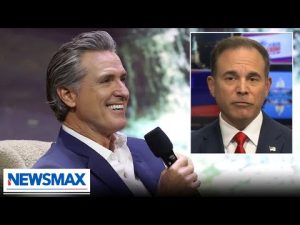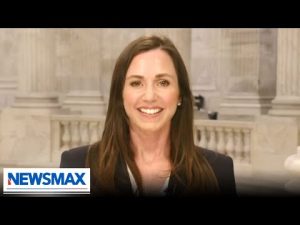**The Unforeseen Consequences of Spicer v. Biden: A Tale of Terminations and Triumph**
In the whirlwind of Washington politics, few stories encapsulate the drama, intrigue, and unexpected twists as vividly as that of former White House Press Secretary Sean Spicer and his legal tussle with President Joe Biden. When Spicer left his post, many assumed life would return to normal. However, what transpired instead was a riveting saga that ultimately had significant implications for presidential power and personnel decisions.
After stepping down, Spicer was appointed to two significant boards: the White House Commission on Fellows and the Board of Visitors for the U.S. Naval Academy. But as the calendar flipped to January 20, the inauguration day for Joe Biden, a seismic shift in political power occurred. Naturally, with a new administration comes a change in appointees, and as tradition goes, resignations followed. Spicer and his fellow commissioners graciously stepped down from their roles, but the abrupt termination he faced from the Naval Academy board was a surprise and rather rude awakening just 60 days later.
On November 1, 2021, an email landed in Spicer’s inbox, demanding his resignation from the Naval Academy Board by that evening. He found this demand quite surprising, considering his term had not officially concluded, and in the spirit of political decorum, he chose to stand firm. Spicer figured he would ride out the last days of his appointed role. But the administration had other ideas, promptly firing him and other members without so much as a “thank you” or a little medal for their service.
What became a touchy political situation soon morphed into something more intriguing when Spicer’s associates proposed taking legal action against Biden. Spicer, not being a lawyer himself, watched with a mix of caution and curiosity as the plan unfolded: to challenge the administration’s right to terminate appointed officials. Lo and behold, this led to the court case titled *Spicer et al. v. Biden*, bringing forth a somewhat surprising conclusion affirming the president’s absolute authority to do so.
As court proceedings progressed, Spicer and his co-plaintiff capitalized on the political drama, making headlines along the way. The case brought not only media attention but also offered a peculiar sense of leverage. By the time the dust settled, Spicer found himself cheering from the sidelines as President Trump began to wield the very authority confirmed by the court to enact personnel changes within his own administration. It’s a classic tale of unintended consequences, where a seemingly mundane firing turned into a gift for the opposition.
What makes this saga particularly enjoyable is the wave of frustration it has stirred among certain factions on the left. In an era when political skirmishes often yield dire results for all parties involved, Spicer’s case provided a light-hearted reminder that missteps could unexpectedly hand their opponents a useful tool. The subsequent firings within the Kennedy Center and other cultural institutions reinforced Spicer’s legal standing, making it clear that a judicial ruling could, in fact, bolster the very power of the presidency that critics sought to weaken.
Now, as Spicer reflects on the uproar caused by his lawsuit, he can’t help but feel a sense of amusement mixed with triumph. After all, who would have thought he’d become a catalyst for a broad-based critique of Biden’s administration’s authority? The left’s outrage over Spicer’s actions reveals a deeper irony: the very individuals who sought to marginalize his voice ended up amplifying it. In the grand game of political chess, it turns out some pieces can maneuver in ways that even the most seasoned players never saw coming.
As this whimsical odyssey continues, the real takeaway is a lesson in resilience and humor in the often-serious game of politics. Gone are the days of timidity when faced with challenges; both sides are now armed with the knowledge that each action, whether a termination or a legal suit, can ripple outwards, shaping the political landscape for years to come. Perhaps it’s time for all policymakers to consider their next step carefully—the chessboard is more complex than it appears, and anyone can unexpectedly become the king.



